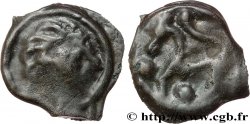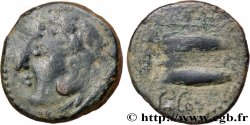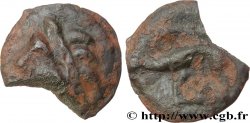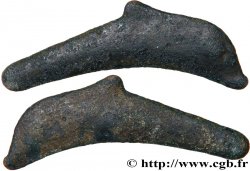v49_0008 - CALABRIA - TARAS Diobole
MONNAIES 49 (2011)
Starting price : 175.00 €
Estimate : 280.00 €
Realised price : 235.00 €
Number of bids : 2
Maximum bid : 300.00 €
Starting price : 175.00 €
Estimate : 280.00 €
Realised price : 235.00 €
Number of bids : 2
Maximum bid : 300.00 €
Type : Diobole
Date: c. 380-325 AC.
Mint name / Town : Calabre, Tarente
Metal : silver
Diameter : 13 mm
Orientation dies : 9 h.
Weight : 1,03 g.
Rarity : R1
Coments on the condition:
Exemplaire sur un petit flan ovale, bien centré des deux côtés. Très belle tête casquée d’Athéna à droite. Très joli revers de style fin et de haut relief. Magnifique patine gris métallique avec des reflets mordorés et de petites oxydations au droit et au revers
Catalogue references :
Predigree :
Cet exemplaire a été acquis chez Joubert (1990)
Obverse
Obverse legend : ANÉPIGRAPHE.
Obverse description : Tête d'Athéna (Minerve) à droite, coiffée du casque attique à cimier orné d’un skylla (monstre marin).
Reverse
Reverse legend : K.
Reverse description : Héraklès (Hercule) debout à droite, étranglant le lion de Némée ; lettre entre les jambes d’Héraklès.
Commentary
Poids léger. Sur cet exemplaire, Hercule ne semble pas tenir de massue. Cette dernière ne se trouve pas non plus dans le champ. Même coin de revers que l’exemplaire de l’American Numismatic Society (ANS. 1382, pl. 37).
Lightweight. On this specimen, Hercules does not appear to be holding a club. The club is also not in the field. Same reverse die as the American Numismatic Society specimen (ANS. 1382, pl. 37)
Lightweight. On this specimen, Hercules does not appear to be holding a club. The club is also not in the field. Same reverse die as the American Numismatic Society specimen (ANS. 1382, pl. 37)







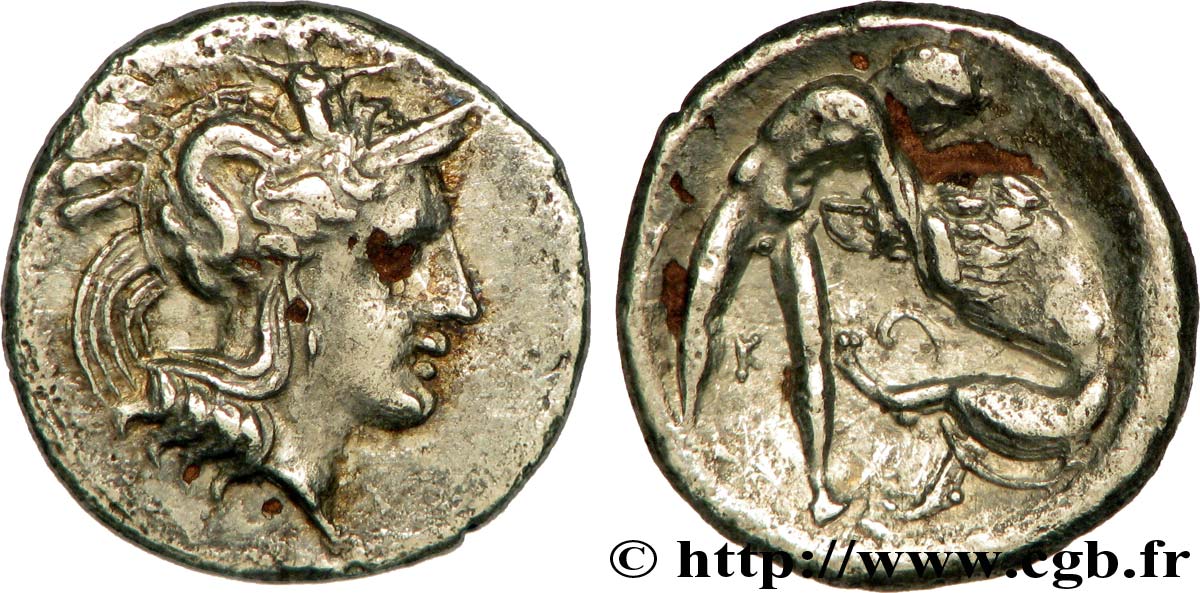
 Report a mistake
Report a mistake Print the page
Print the page Share my selection
Share my selection Ask a question
Ask a question Consign / sell
Consign / sell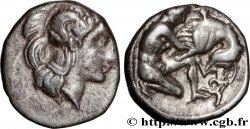
 Full data
Full data




